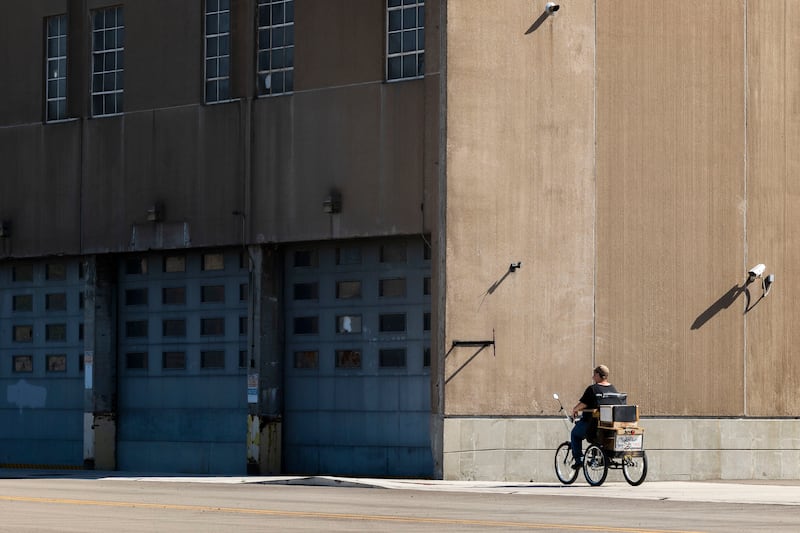The Sterling City Council unanimously approved an ordinance Monday, Oct. 6, that will map a portion of the city as a designated River Edge Redevelopment Zone, an action that could provide up to $50 million in tax incentives for economic development work already started along the city’s riverfront.
According to the Department of Commerce and Economic Opportunity, once a city is designated, certain areas are allocated as a “River Edge Redevelopment Zone.” Sterling received its designation earlier this year as part of the state’s omnibus budget package, House Bill 2755, which was signed into law by Gov. JB Pritzker.
The RERZ is designed to spur investment through a series of tax incentives, including sales and property tax abatements, as well as historic tax credits of up to 45% for qualifying projects.
:quality(70)/cloudfront-us-east-1.images.arcpublishing.com/shawmedia/O2F7WWJHVNHT3NS5Q77MOG4DMY.jpeg)
“Some of the qualifiers for being a historic building are a little bit more lenient, and some of the requirements to stay a historic building aren’t as stringent as they used to be,” Sterling Mayor Diana Merdian said. “They’re getting a little bit easier to work with now... But there is a whole process, and I know that was part of the whole agreement with Gorman [& Co.], with the City of Sterling, and they’ve been working on that for the Lawrence and National [buildings].”
Other incentives include:
- Dividend income deduction: Individuals, corporations, trusts, and estates can deduct from their taxable income an amount equal to dividends received from a corporation that conducts substantially all of its operations within an RERZ.
- New construction job credits: Eligible project owners may deduct tax credits received from their taxable income. These credits are based on the incremental income tax generated by construction employees working on qualifying River Edge projects.
- Building materials sales tax exemption: Provides an exemption from sales tax on construction materials used in nonresidential projects located within the RERZ.
- Interest income deduction: Financial institutions may deduct from their state corporate income tax an amount equal to the interest earned on loans made for developments within an RERZ. To qualify, the loan must be secured by property located inside the zone.
“It depends on which of the things you’re looking at, but the one thing which is similar to the Enterprise Zone that we currently have... it’s an abatement of taxes going forward on the improvements on the property,” City Manager Scott Shumard said. “So if you’re paying $10,000 a year property tax on a commercial property now, and you do enough improvements that it goes up to $15,000, the $5,000 difference is abated for that period of time.”
The city held a public hearing on Monday before the City Council meeting, outlining the guidelines for the proposed RERZ, which would encompass properties located within a half mile of the Rock River, inside city limits, and within roughly 1,500 yards of the riverbank. Eligible areas include both commercial buildings within the RERZ and properties within 100 acres of environmentally challenged sites, such as former industrial or brownfield areas.
:quality(70)/cloudfront-us-east-1.images.arcpublishing.com/shawmedia/H6M5SQ42LBAABNNCFZN7AXQFZM.jpeg)
The program, however, is not retroactive — projects within the RERZ that have already been completed or started before the approval will not be eligible to receive credits.
Merdian said that projects located within the RERZ that also fall inside one of the city’s Tax Increment Financing districts can benefit from both incentive programs. However, developments that overlap with the Whiteside Carroll Enterprise Zone must choose between the two sets of incentives.
The city’s next step is sending its application to the DCEO for certification, which could take up to six months to process. The program is scheduled to expire in 2026, though pending legislation could extend it beyond that date.
“The program is in veto session right now because all of the cities that are in this program, all have the expiration date of 2026,” Merdian said. “So all of the other cities, like Rockford, Aurora, the Quad-Cities, are all pushing to get it extended so that all of these credits can continue after 2026.”
